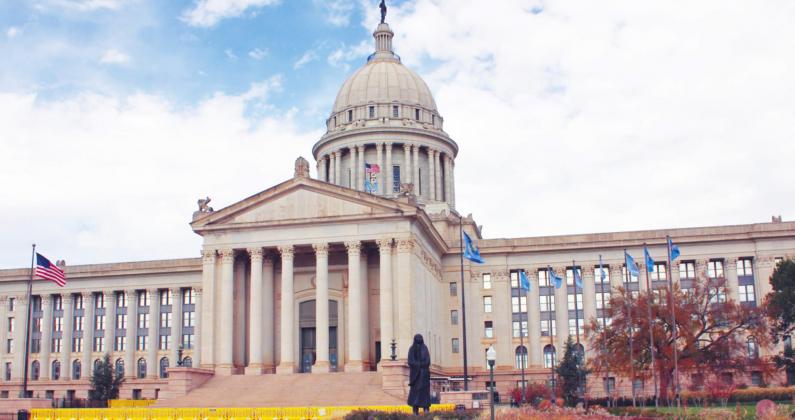OKLAHOMA CITY – The Oklahoma Legislature used all the time it could in 2022, adjourning on Friday, May 27, minutes before the constitutionally mandated deadline, after passing more than 430 bills.
Those bills covered a wide range of issues, from the state budget to medical marijuana and education. But perhaps no issue was more publicized this session than abortion, especially after news that the U.S. Supreme Court may overturn Roe v. Wade.
With Republican supermajorities in both legislatures and a governor who has vowed to sign every pro-life bill he receives, Oklahoma passed several anti-abortion bills this session. One of them, House Bill 4327, bans abortions from the point of fertilization.
Gov. Kevin Stitt signed the law last week; it went into effect immediately.
Though Oklahoma’s outnumbered Democrats bitterly opposed that bill and several others passed this session, the two parties did find common cause on other issues. Bipartisan majorities helped pass bills to make it easier to obtain a REAL ID driver’s license (HB 3419), eliminate a yearslong waiting list for services for Oklahomans with developmental disabilities (HB 4466), and incentivize students to pursue a teaching degree and enter the classroom in Oklahoma (HB 3564).
A Stitt-backed proposal to lure a major business to Oklahoma with robust tax incentives – nearly $700 million total, if certain benchmarks are met – passed in April with bipartisan support. The company involved is believed to be Panasonic, which is eyeing a large electric vehicle battery factory near Tulsa.
Rural legislators had their eye on medical marijuana legislation this session, as the industry expanded too fast for regulators to keep up after legalization in 2018. HB 3208 includes a moratorium on new licenses for growers, processors and dispensaries that begins on Aug. 1; the moratorium could last up to two years, but will be lifted once the Oklahoma Medical Marijuana Authority completes all pending license reviews and inspections.
The revamped OMMA was spun off into a standalone agency, no longer under the state health department, and has created a “seed-to-sale” tracking system to keep tabs on products. Legislators hope these changes will help rein in the bad actors in Oklahoma’s cannabis scene while protecting legal operations.
Dissension in the ranks
With strong majorities in state government, Republicans set the agenda in Oklahoma City and passed legislation on hot-button cultural issues over Democratic objections. For instance, the Legislature banned biological males from competing in girls and women’s sports, and passed a law requiring students to use restrooms that correspond to their sex at birth. (Schools must also provide a single-occupancy restroom.)
But the caucus couldn’t always find common ground. In March, the Oklahoma Senate narrowly rejected a school voucher bill championed by Stitt and Senate President Pro Tem Greg Treat, R-OKC. Treat’s House counterpart, Speaker Charles McCall, R-Atoka, opposed the bill and had vowed not to hear it, though the legislation ultimately never made it to his chamber.
The session’s final days were also characterized by tension between the Legislature and Stitt, who vetoed several line items in the state budget. Stitt called the Legislature into a special session later this month, saying in a Thursday press conference that he’d been left “in the dark” during budget negotiations. Legislative leaders did not hide their frustration.
In a press release, McCall said Stitt’s conference amounted to a “glory-mongering tantrum.”
“As we do every session, legislators will move forward in a stately, truthful manner that respects all parties without the unnecessary insults and falsehoods the governor excreted Thursday,” McCall said.
The special session Stitt called will convene on June 13. Stitt is asking lawmakers to rescind or reduce the state sales tax on groceries, a measure that had some bipartisan support but didn’t make it into the final state budget passed by the Legislature. Instead, lawmakers included a direct rebate for taxpayers and the elimination of a 1.25% sales tax on vehicles sales.
Stitt vetoed both measures. Lawmakers on Friday let those vetoes stand but overrode Stitt on six other pieces of legislation, which requires two-thirds support from both chambers.
Watonga’s lawmakers penned columns reacting to the session and highlighting certain legislation, which can be found on Page A2.

